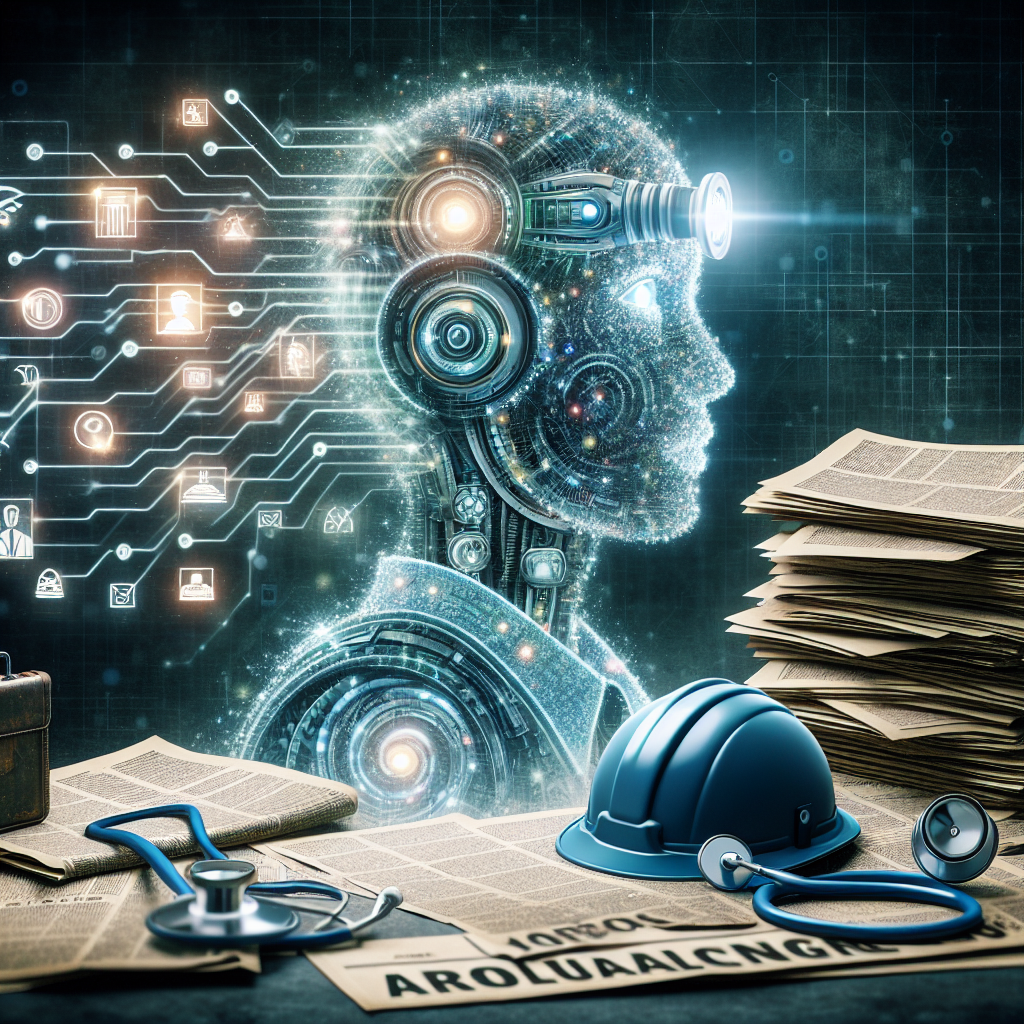The Impact of AI and Machine Learning on Jobs
In recent years, artificial intelligence (AI) and machine learning have been transforming industries across the globe. From automation to predictive analytics, these technologies have the potential to revolutionize the way we work. However, with this transformation comes a concern about the impact on jobs.
As AI and machine learning become more prevalent in the workforce, there is a fear that they will replace human workers, leading to widespread job loss. While it is true that some jobs may become obsolete as a result of these technologies, there are also new opportunities being created. In this article, we will explore the impact of AI and machine learning on jobs and how individuals can prepare for the changes ahead.
The Rise of AI and Machine Learning
AI and machine learning have become increasingly popular in recent years due to advancements in technology and data processing capabilities. These technologies are being used in a variety of industries, from healthcare to finance to retail. AI systems are able to process large amounts of data and make decisions or predictions based on that data, while machine learning algorithms can learn from that data to improve their performance over time.
One of the main benefits of AI and machine learning is their ability to automate tasks that were previously performed by humans. This can lead to increased efficiency and cost savings for businesses. For example, in the manufacturing industry, robots can now perform tasks such as assembly and packaging, reducing the need for human workers in these roles.
The Impact on Jobs
While the automation of tasks can lead to increased efficiency, it also raises concerns about the impact on jobs. Some fear that AI and machine learning will lead to widespread job loss as more tasks become automated. However, experts believe that while some jobs may be eliminated, new roles will be created as a result of these technologies.
For example, as AI systems become more prevalent in healthcare, there will be a growing need for professionals who can develop and maintain these systems. Additionally, as businesses rely more on data-driven decision-making, there will be a demand for data analysts and data scientists who can interpret and analyze the vast amounts of data being generated.
Another potential impact of AI and machine learning on jobs is the need for workers to adapt and reskill. As tasks become automated, workers will need to develop new skills in order to remain relevant in the workforce. This may involve learning how to work alongside AI systems or developing skills in areas such as data analysis or programming.
Preparing for the Future
In order to prepare for the impact of AI and machine learning on jobs, individuals can take proactive steps to ensure they remain competitive in the workforce. This may involve pursuing education and training in areas related to AI and machine learning, such as data science or programming. Additionally, individuals can seek out opportunities to work on projects involving these technologies in order to gain hands-on experience.
It is also important for businesses to invest in training and development programs for their employees in order to prepare them for the changes ahead. By providing opportunities for workers to develop new skills and adapt to new technologies, businesses can ensure they remain competitive in the evolving workforce.
FAQs
Q: Will AI and machine learning lead to widespread job loss?
A: While some jobs may be eliminated as a result of automation, new roles will be created as a result of these technologies. It is important for individuals to adapt and reskill in order to remain competitive in the workforce.
Q: What skills will be in demand as a result of AI and machine learning?
A: Skills such as data analysis, programming, and development of AI systems will be in demand as businesses rely more on data-driven decision-making and automation.
Q: How can individuals prepare for the impact of AI and machine learning on jobs?
A: Individuals can prepare by pursuing education and training in areas related to AI and machine learning, seeking out opportunities to work on projects involving these technologies, and developing new skills to remain competitive in the workforce.
In conclusion, the impact of AI and machine learning on jobs is a complex issue that requires careful consideration. While there may be some job loss as a result of automation, there are also new opportunities being created. By preparing for the changes ahead and developing new skills, individuals can ensure they remain competitive in the evolving workforce. Businesses can also play a role in preparing their employees for the future by investing in training and development programs. Ultimately, the key to success in the age of AI and machine learning lies in adaptation and reskilling.

